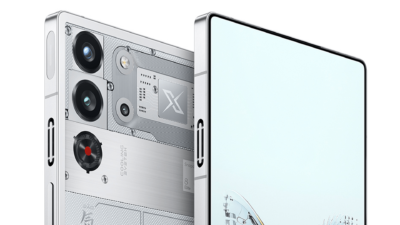How Close Is The Internet To Becoming Decentralized?

The idea of a decentralized internet is still a concept in the form of Web 3.0 that’s slowly developing in the background. The idea of creating an open and decentralized internet has been a pipe dream of many trying to get away from the rigid constraints of the internet we use today, which is heavily regulated.
Web 3.0 frequently pops up almost as a buzzword in the tech ecosystem, and the insane amounts of cash flowing as an investment is nothing short of eye-watering. We’re talking billions of dollars. Let’s explore the idea behind the decentralized internet and where we’re at today.
What’s Web 3.0?
Web 3.0, also known as the decentralized web or the semantic web, refers to the next generation of the internet. The current web model, Web 2.0, is characterized by the dominance of centralized platforms such as Google, Facebook, and Amazon. Web 3.0 aims to create a more decentralized and democratized internet that is controlled by its users and decentralized currencies, such as Bitcoin.
Web 3.0 is built on the idea of the blockchain, a distributed ledger technology that enables secure and transparent transactions without the need for intermediaries. That means that Web 3.0 applications can be run on a decentralized network, where users own and control their data and can transact directly with each other without the need for centralized platforms.
Web 3.0 also aims to make the internet more intelligent by using machine learning and natural language processing technologies to understand and organize data. That will enable applications to provide a more personalized and relevant user experience and allow for more efficient and effective communication between machines.
Some potential use cases of Web 3.0 include decentralized social networks, peer-to-peer marketplaces, and decentralized finance platforms. There’s already evidence of this in the form of the many coin wallet apps that use a decentralized platform. Web 3.0 can potentially revolutionize how we store and share data and interact with technology and each other online.
Why Do People Want A Decentralized Internet?
The list of reasons people want a decentralized internet is endless, and up there at the top is privacy. Do you ever feel like big brother is watching when using the internet? Do you find yourself having ads pop up on your phone that only someone watching would know about? That’s why people are calling for a decentralized network where everything is more transparent. A decentralized internet can provide users with increased privacy as it eliminates the need for a central authority to control and monitor user data. Instead, users can have greater control over their data and how it is shared.
Similarly, a decentralized internet can make it more difficult for governments and other entities to censor or block online content. Because there is no central authority controlling the network, it is harder to shut down or block specific websites or services. The internet we use now is unbelievably heavily regulated and restricted, more than most people know about, however, people can still surf the internet with various free or paid services.
What Does It Mean For The Internet We Use Now?
As Web 3.0 continues to develop, it will likely have a significant impact on Web 2.0. For example, Web 3.0’s emphasis on decentralization and security could provide an alternative to centralized platforms that have been criticized for data breaches and privacy violations.
Additionally, Web 3.0’s integration of blockchain technology could enable new business models for content creators and other stakeholders. That could disrupt the current advertising-based revenue model of Web 2.0 platforms and create new monetization opportunities.
Already, we’re seeing more people delve into the decentralized world of the internet with NFTs, play-to-earn gaming, and the Metaverse realms. Celebrities are even jumping on board, with the likes of Justin Bieber and Snoop Dogg promoting NFTs to their millions of followers. Play-to-earn gaming refers to a type of online gaming where players can earn real-world money or cryptocurrency by playing the game. In these games, players are rewarded with in-game tokens or other digital assets for completing tasks or reaching certain milestones within the game.
You can then sell the digital assets on cryptocurrency exchanges or trade for other digital assets. Play-to-earn gaming has become increasingly popular in the last few years, especially with the rise of blockchain technology and non-fungible tokens (NFTs).
Those are just two applications of Web 3.0 that are taking the world by storm and showing snippets of what a decentralized internet could look like.
What Developments Are Happening In 2023?
It’s expected that the focus will be on developing NFTs and the Metaverse, with tech giants like Mark Zuckerberg investing – and losing – billions of dollars to try and make his decentralized world part of Facebook. There are no specific set developments that will bring Web 3.0 in a position to take over Web 2.0, but the massive strides in areas like NFTs and the Metaverse prove we’re taking a step towards Web 3.0 dominance.
The idea of Web 3.0 is exciting – it’s a concept that’s been developing in the background in the hope of changing how we use the internet. Billions of dollars will flood the decentralized realm in 2023, paving the way for upgrades and technology to drive Web 3.0 into the future.
Research Snipers is currently covering all technology news including Google, Apple, Android, Xiaomi, Huawei, Samsung News, and More. Research Snipers has decade of experience in breaking technology news, covering latest trends in tech news, and recent developments.











